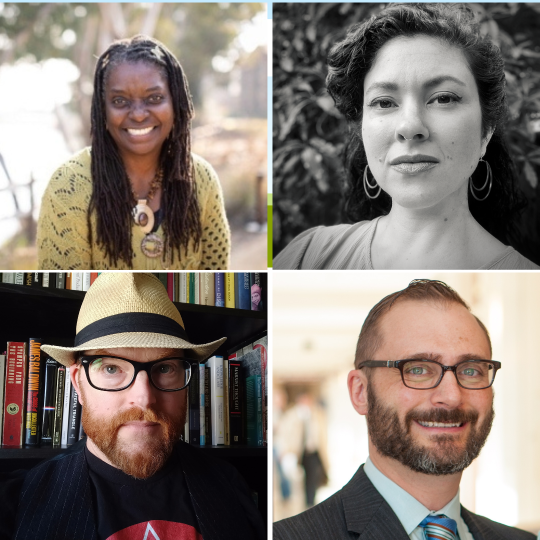Common Read Initiative: What is Whiteness?
The goal behind the Common Read Initiative is to have conversations about race on the Sonoma State campus, something Dr. Anthony Rizzuto finds now more important than ever at the October 26th faculty panel on “What is Whiteness?” On discussing race, he feels that “We’ve gone backwards since [the 1990s]. Critical race studies is under attack by state legislatures and school boards and a loud minority of people across the country who seem to be taking whiteness studies very personally.” The concept of whiteness, Rizzuto continued, is exactly that: a concept, not a biological or physical representation of humans.
October 26th’s Common Read Faculty Panel engaged administrators, faculty, and students on the topic of “What is Whiteness?,” from Ijeoma Oluo’s book So You Want to Talk About Race. Moderated by Dr. Rizzuto, Drs. Kim Hester Williams, Theresa Burruel Stone, and Don Romesburg discussed whiteness in relation to Oluo’s book, their own works, and to the historical and modern manifestations of race and racism in the United States.
Despite its conceptualness, race has been used as a tool for discrimination and oppression, so while whiteness is not physical, it has physical consequences. Dr. Hester Williams (of the English and AMCS departments) stated, “Whiteness is a powerful and consequential imaginary construct. It is a construct formed from a story, a myth, about a group of people who wished to maintain social, cultural and economic power and supremacy over the people they were subjugating in order to gain that power.” Leading with this, Dr. Hester Williams pulled from her own research and writings on the forms whiteness takes, specifically in American society. She cited Thomas Jefferson’s Notes on the State of Virginia, Judge Taney’s statement on the Dred Scott case of 1857, and Edgar Allen Poe’s The Narrative of Arthur Gordon Pym to demonstrate how whiteness is an imaginary concept that has been designed to exist “boundlessly.” She concluded with an excerpt from her essay recently published in The Many Lives of Scary Clowns, which interprets Stephen King’s Pennywise as a “relation to American identity and lived racial trauma resulting from a long history of settler-colonialism relations and whiteness, [manifesting as] racial fear and anxiety and terror.” Like Pennywise in It: Chapter Two, whiteness must be defeated, says Hester Williams.
English Education professor Dr. Burruel Stone connected So You Want to Talk About Race with her own recent article “Centering Place in Ethnographies of Latinx Schooling” that was published by the International Review of Qualitative Inquiry. Both their article and background examine how non-Black and non-Indigenous Latinx students navigate the academic system and the systems of racialized violence they must face. As both Oluo’s book and Dr. Hester Williams’ talk establish, whiteness is an idealized concept used to enforce superiority over others to create an inequitable system. Dr. Burruel Stone focuses on Latinx youth for whose ethnic distinctions of national origin, immigration, and language act as a barrier to prevent them from being seen as fully idealized and superior. In this case, race is being conflated with national identity to establish a whiteness that is not only white, but Western and with a passport preference.
Dr. Don Romesburg, Women and Gender Studies professor, concluded the panel with his takeaways from Oluo’s book. Whiteness is used as a powerful weapon to define and to oppress, and has a “license” to create and uphold inequitable worlds. To unmask whiteness as an imaginary concept and to identify the harms it creates, is an important step to fighting it. Engaging our community here on campus to discuss and deconstruct conceptions around race is an integral step towards a stronger culture both at Sonoma State and in the world, wherever our students, faculty, and alumni choose to go. Having conversations as a community, like the Common Read, is a building block for a better future.
Attending this panel was an enriching experience and a very educational one. I was highly interested by the connection of So You Want to Talk About Race with each speaker’s own research and additional sources to further examine the concepts and realities of whiteness, and I look forward to continuing to attend the Common Read Initiative talks.

Author: Meryl Wenger



